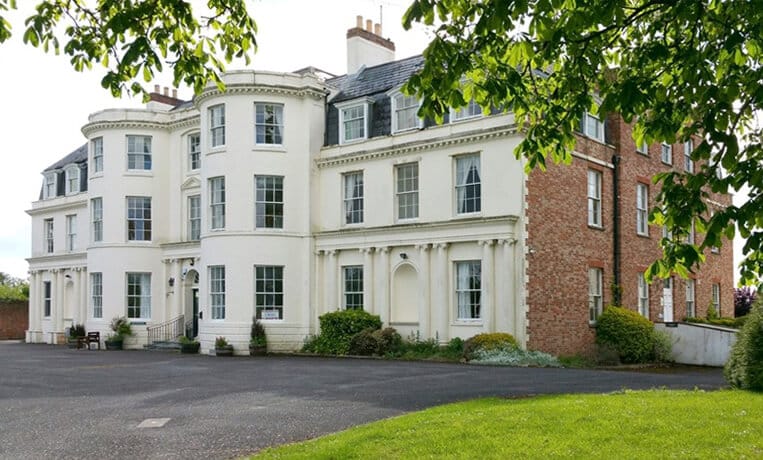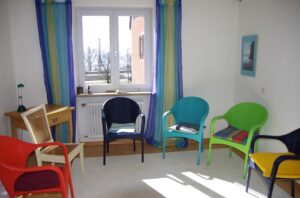It is important to recognise that drug and alcohol rehab in Bath is an important aspect of the city.
The Roman city of Bath is one of the UK’s most popular tourist attractions.
However, like elsewhere in the UK, Bath also experiences a problem with drug and alcohol addiction.
If you live in Bath and you are struggling to cope due to your addiction to drugs or alcohol, then know that help at an addiction treatment centre with evidence based treatments is only a telephone call away.
Each year, Rehab 4 Addiction assists hundreds of people in Bath in helping them overcome their addiction at a drug or alcohol rehab centre, and we are confident that we can help you too.
According to the Office of National Statistics, Bath and North Somerset have a heroin/morphine-related death rate of 1.8 per 100,000. [1]
The rate of drug-related death has risen in the area in recent years, going from 3.9 in 2015 to 8.5 in 2020. [2]
Another report found that 24.2% of the adult population in Bath and North Somerset are drinking too much alcohol, totalling 29,300 ‘risky drinkers’ in total. [3]
Please call our 24-Hour Helpline for advice about drug and alcohol rehab in Bath: 0800 140 4690

Many people affected by addiction erroneously blame themselves for their ill fortune. However, this belief is faulty because addiction is a disease.
The myth that addiction was a lifestyle choice was dispelled many years ago.
No longer do medical professionals, and therapists attribute moral failings as the cause of addiction.
Although this myth has long been dispelled amongst medical professionals, this myth is still perpetuated in the general population.
It’s likely your family and friends have all placed blame on your shoulders because of your addiction or alcohol dependency.
Unfortunately, many people addicted to drugs and alcohol begin to believe this lie, and the stigma associated with addiction prevents many people from seeking out professional help.
In turn, this stigma is arguably the cause of many otherwise avoidable deaths that inevitably result when help is not sought out.
When you contact Rehab 4 Addiction, your enquiry will be handled by advisors who show compassion and empathy for your situation.
In fact, many of our advisors can positively identify with your situation because they have suffered from addiction themselves and gone on to live a happy and fulfilling existence in their recovery.
Please call our 24-Hour Helpline for advice about drug and alcohol rehab in Bath: 0800 140 4690

If you have used drugs and alcohol for many years, your behaviour becomes locked in this seemingly unshakable cycle such as that with binge drinking or a cocaine addiction.
Breaking free from addiction isn’t easy, but with the right help and vision, you can establish new patterns of behaviour that help you to live your life in recovery.
Many drugs are physically addictive. This includes alcohol and all opiates.
If you attempt to stop taking these drugs, you will soon begin to suffer from a range of withdrawal symptoms such as alcohol withdrawal symptoms.
For people addicted to opiates, these withdrawal symptoms include flu-like symptoms.
The easiest way to treat these symptoms is to continue to use opiates, which defeats the purpose of trying to get clean from these drugs in the first place.
If you are addicted to alcohol, you may assume the detox process is safe, perhaps because alcohol is a legal drug.
You thus may be surprised to learn that alcohol is a dangerous drug to detox off.
Whilst an opiate detox is highly discomforting, opiate detox is not lethal in any possible way. This contrasts sharply with alcohol detoxification.
Thousands of lives are lost each year because an alcohol detox is undertaken without medical assistance.
You can get rehabilitation help with a number of addictions including cannabis addiction, cocaine rehab, cocaine withdrawal, alcohol withdrawal, methadone detox, alcohol home detox, crack cocaine, heroin rehab for heroin addiction, behavioural addictions like gambling, crystal meth, ecstasy, prescription drug addiction, LSD, ketamine, amphetamine and fentanyl addictions.
With the right addiction treatment, you will also receive help for any mental health disorders through mental health treatment.
Please call our 24-Hour Helpline for advice about drug and alcohol rehab in Bath: 0800 140 4690

Beginning the recovery process is no easy task, and very often, it is not addicted individuals themselves who are able to do it.
Denial is often considered to be part of being addicted, and so their family and friends can push them towards recovery by using an intervention. [4]
In these events, an individual’s loved ones come together to talk about the growing problem that their substance abuse has become.
Such discussions are supportive, with each attendee sharing how the condition has impacted them and what support they can offer.
The objective is not to shame an individual into rehab but to show them the need for it.
Ideally, they will come to the conclusion that they need help.
However, it is normal for them to reject the event, so interventions also need to establish consequences.
Organising this kind of event is challenging, and professional interventionists are available to offer their expertise in crafting and holding a successful intervention.
Please call our 24-Hour Helpline for advice about drug and alcohol rehab in Bath: 0800 140 4690

Interventions can also deviate from this conventional style.
The CRAFT approach, for example, sees family and friends working together to influence an individual’s behaviour for the better.
Rather than via an event, they try to do this through a reward system that sees healthy behaviours positively rewarded and addiction-fuelling behaviours punished.
The objective is to replace the associations an individual has with addictive behaviours.
Influencing an individual to the point that they change their behaviour requires consistency and unanimity.
Therefore, those involved in the CRAFT process must work tightly together and ensure they keep on top of how an individual is behaving and react appropriately.
Please call our 24-Hour Helpline: 0800 140 4690

Determining whether an individual is suffering from addiction or not is a difficult thing.
To help with this, the CAGE Questionnaire is a tool which helps spot signs of addictive behaviour rather than casual substance use.
To gain a better sense of whether they are addicted, individuals need to ask themselves the following four questions:
Answering ‘yes’ to any of these questions might suggest the presence of a substance use problem.
Please call our 24-Hour Helpline for advice about drug and alcohol rehab in Bath: 0800 140 4690

Paying for drug and alcohol rehab in Bath is more complicated than it might seem.
The treatment price depends greatly on what kind of programme an individual selects.
On average, a day of drug or alcohol rehabilitation in the UK costs £495, or £14,000 for 28 days.
Either side of this estimate, a week of rehab can range from £1,000 to £10,000.
More luxurious options provided by private companies can charge up to £73,000 for a 28-day programme.
Please call our 24-Hour Helpline for advice about drug and alcohol rehab in Bath: 0800 140 4690

Health insurance in the UK today usually offers coverage for mental health and addiction support services.
They usually cover detox, medical assessments, and therapy.
Accessing this coverage usually requires an individual to be open with their insurance provider.
A referral needs to be obtained by a GP and then given to both the rehab provider and insurance provider before rehab can be arranged.
Please call our 24-Hour Helpline for advice about drug and alcohol rehab in Bath: 0800 140 4690

The NHS does provide addiction support, but these take the form of community services, such as drop-in sessions.
Unfortunately, this leaves individuals vulnerable to the negative influences of everyday life. The NHS does not provide drug and alcohol rehab in Bath.
For inpatient services and inpatient rehab, individuals must apply for council funding so that they can access private support.
This isn’t easy to get, and successful applicants have to meet a strict criterion and consistently display their motivation to get better, often over several months.
Please call our 24-Hour Helpline for advice about drug and alcohol rehab in Bath: 0800 140 4690

Rehab tends to last a total of 28 days. The first seven-to-ten days are spent working through detox and gaining physical sobriety.
The following three weeks are used to explore the psychological roots of the condition through therapy.
The time an individual spends in drug and alcohol rehab in Bath ranges in duration depending on several factors.
Such as the substance they are addicted to, the severity of their condition, and the time it takes to find an effective approach to therapy.
Please call our 24-Hour Helpline for advice about drug and alcohol rehab in Bath: 0800 140 4690

At the start of their addiction recovery journey, individuals can opt for private or NHS-provided drug and alcohol rehab Bath.
Both have their respective advantages and considering these is vital when choosing the best option for drug addiction treatment for a specific individual.
Please call our 24-Hour Helpline for advice about drug and alcohol rehab in Bath: 0800 140 4690

The best part about NHS addiction support is that it is free for individuals to access.
Accessing support services in the wider community is easy, and gaining council funds for rehab ensures that individuals from any background can get the help they need.
The expansiveness of the NHS also ensures such services are available all over the UK, meaning those in Bath always have a local option.
NHS services are, however, limited in what support they can offer.
Drop-in sessions leave individuals vulnerable to the triggers of everyday life, and acquiring council funding is a long, arduous process, during which addiction conditions can get worse.
Please call our 24-Hour Helpline for advice about drug and alcohol rehab in Bath: 0800 140 4690

Private addiction services are comprehensive, offering a wide range of facilities and activities for individuals to enjoy.
They get personal accommodation and catering as well as exercise, spa, and holistic treatment resources to complement their recovery.
What limits the helpfulness of private rehab, however, is the extortionate admission fees.
These are often unaffordable for the average person, meaning most cannot access the abundance of support available.
Please call our 24-Hour Helpline for advice about drug and alcohol rehab in Bath: 0800 140 4690

Going through addiction treatment or multiple addiction treatments can take one of two forms.
Individuals can either go through inpatient drug and alcohol rehab in Bath or access outpatient support services.
Progressing through inpatient treatment puts individuals under the constant supervision of doctors and addiction specialists.
The obvious benefit of this is that it ensures rehab is as safe as possible. Specifically, it ensures detox is monitored carefully and suitably paced.
Additionally, the isolation provided by this form of treatment ensures individuals are kept apart from the triggers and temptations that fuelled their substance abuse.
By staying away from such things, they can achieve an unrivalled degree of focus and commit to recovery.
The primary limitation of this treatment is that it effectively puts the individual’s life on pause.
They cannot leave a facility until they have recovered, meaning they can’t work or see friends and family for the duration of their recovery. These restrictions can often frustrate individuals.
Please call our 24-Hour Helpline for advice about drug and alcohol rehab in Bath: 0800 140 4690

Accessing outpatient services has the benefit of allowing recovering individuals to live their life as normally as possible.
Attending sessions on a regular basis, they are able to continue working and living at home, often resulting in their attitude and motivation remains high.
Flexibility is also offered with this treatment in that outpatient sessions can be used to treat an individual’s most pressing issues on a week-by-week basis.
Each session can adjust its content to suit whatever is most suitable, ensuring the ongoing relevance of support.
Not living within a treatment facility, however, leaves individuals vulnerable to the influences and triggers of their everyday life.
They will have no protection from the people and situations that sparked their condition, and so they can relapse between sessions.

Alcohol detox in Bath must be a careful process, largely due to the withdrawal symptoms that can result from quitting drinking.
Alcoholism is infamous for its especially dangerous withdrawal if you go cold turkey, with symptoms like Delirium Tremens being potentially life-threatening.
Rehab supports individuals in becoming sober by constantly monitoring their progress and health.
Doctors ensure the medical detox process is not going too fast, and withdrawal symptoms are dampened with the prescription of Benzodiazepines like Librium.
You may also be prescribed other medications such as Acamprosate (Campral®), as an antidepressant like nefazodone, desipramine, or imipramine, or the opioid antagonist Naltrexone which helps to uncouple the relationship between alcohol and pleasure.
Detox tends to take around ten days, and this is followed by several weeks of therapy.
This stage involves tackling the emotional origins of the condition, identifying triggers, and helping individuals develop ways of combatting them.
Finally, relapse prevention prepares individuals for life after rehab.
As for your body’s recovery after drinking alcohol, damaged organs may regain function partially or heal altogether. This depends on the condition of your addiction.
It is reported that about 14% of alcoholics develop liver cirrhosis if they continue their drinking habits for over a period of 8 years. It is best to stop drinking today so you can have the best chance at a full recovery.
Please call our 24-Hour Helpline for advice about drug and alcohol rehab in Bath: 0800 140 4690

Taking cocaine can cause individuals to become psychologically dependent on it.
This involves them becoming so used to the pleasurable effects of the drug that they do not believe themselves capable of functioning normally without it.
Rehab for cocaine in Bath tackles this form of addiction via therapy.
This treatment seeks to understand and treat an individual’s emotional and psychological attachment to cocaine.
Triggers are identified, their impact is discussed, and coping mechanisms are practised.
Cognitive Behavioural Therapy (CBT) is a popular example of addiction therapy.
During sessions, an individual will talk with a therapist about the thought processes that spark their cocaine use, and techniques for interrupting these are discussed and developed.
Please call our 24-Hour Helpline for advice about drug and alcohol rehab in Bath: 0800 140 4690

England’s Care Quality Commission (CQC) regulates rehab clinics with an iron fist. This is particularly the case for rehabs offering alcohol detox services.
The CQC employs a team of medical professionals to annually audit rehab clinics offering alcohol rehab services.
If the agreed National Institute for Health and Care and Excellence (NICE) procedures are not followed, fines are issued.
If rehab clinics continue to neglect NICE procedures, the CQC has the power to close offending rehab clinics.
Thankfully, the CQC’s role helps to save lives. This is because an alcohol detox is potentially lethal, and NICE procedures exist to help clinics eliminate these risks using a range of medical techniques.
Alcohol detox is potentially risky because when you are addicted to alcohol, the brain releases chemicals known as inhibitory neurons. These neurons are called GABA-A receptors.
When you stop drinking alcohol, the brain stops these neurons, and this causes the mind to jolt.
This jolting effect may trigger a seizure or even a heart attack.
To prevent these withdrawal symptoms, drug and alcohol rehab clinics we recommend in Bath will psychiatrically assess you upon arrival.
Following on from this assessment, you will then be given medications that trigger the release of GABA-A receptors in ways similar to alcohol.
The clinic will then taper your dosage of these medications slowly over the course of a seven-to-ten-day detox programme.
During the detox, you will also be monitored by medical staff. Sometimes, you may require a greater dosage of medication to help prevent withdrawal symptoms.
The clinical team will monitor your state of well-being and increase your dosage of medication if necessary.
Please call our 24-Hour Helpline for advice about drug and alcohol rehab in Bath: 0800 140 4690

When heroin is taken on a regular basis, individuals can develop a physical reliance on the habit.
When this happens, the body reacts similarly to when alcohol is abused, changing its chemistry to accommodate for the presence of heroin.
Quitting heroin can spark withdrawal, and rehab needs to take care when treating this.
Detox in Bath usually involves gradual weaning from the drug, with doctors monitoring progress and prescribing Benzodiazepines when necessary to dampen symptoms.
Physical sobriety is then built upon therapies designed to treat the psychological roots of heroin addiction.
This stage of rehab draws attention to the thoughts, feelings, or situations that most trigger addictive tendencies and facilitates coping strategies.
Please call our 24-Hour Helpline for advice about drug and alcohol rehab in Bath: 0800 140 4690

Consuming cannabis regularly or excessively can cause individuals to become psychologically dependent on it.
A study carried out by Wayne Hall and Louisa Degenhardt identified the adverse side effects of regular use of cannabis during adolescence and into adulthood can include ‘a dependence syndrome, increased risk of motor vehicle crashes, impaired respiratory function, cardiovascular disease, and adverse effects of regular use on adolescent psychosocial development and mental health’.
While not physically addictive, the drug’s pleasurable effects can lead those who abuse it to think they need cannabis in order to function.
Rehab for cannabis in Bath looks to alleviate this reliance through therapy.
Therapists work with individuals to identify and understand the triggers that lead to addictive behaviours and then support them in developing ways of resisting their influence.
Dialectical Behavioural Therapy (DBT), for example, is a therapy type that focuses on overpowering emotions.
Individuals who use cannabis to handle their grief, sadness, or anger are supported in developing new ways of attaining calm and living a freer life.
Please call our 24-Hour Helpline for advice about drug and alcohol rehab in Bath: 0800 140 4690

CBT focuses on the thought processes that individuals develop, which consistently fuel their substance abuse.
As humans, we often fall into repetitive ways of thinking, and addicted individuals commonly resort to drugs or alcohol as a result of similar cognitive responses.
Tackling this involves a therapist helping an individual to first acknowledge and identify the thoughts that prompt substance abuse.
Techniques are then discussed and practised to help them interrupt these processes and develop new ways of thinking and responding to issues.
Please call our 24-Hour Helpline: 0800 140 4690

DBT’s focus lies with the difficult emotions that individuals can often use drugs or alcohol to cope with.
The numbing effects of such substances can act as self-medication for grief or sadness.
This therapy encourages open discussion of such feelings, through which an understanding can be developed as to what is causing addictive behaviours and how such emotions can be better handled.
Please call our 24-Hour Helpline: 0800 140 4690

As the name suggests, Brief Interventions are short sessions that look to offer individuals support and guidance as they go through their recovery.
These sessions are flexible in nature, adapting their content to suit whatever an individual needs at the current time.

Rather than treating addiction directly, Motivational Interviewing or motivational therapy focuses on helping individuals maintain their focus and drive throughout the both physically and mentally challenging rehab process.
By helping individuals establish what goals they have, both in recovery and wider life, this treatment provides them with the focus to endure when treatment gets difficult.
Please call our 24-Hour Helpline: 0800 140 4690

Alternative and holistic therapy can support individuals attain overall improved health and well-being.
This holistic approach helps patients in combatting substance abuse.
In teaching them to play an instrument, care for an animal, or improve their physical health, these treatments provide individuals with a new outlook on life.
Most importantly, they offer the patient alternative routes for attaining health and happiness that do not rely on drugs or alcohol.
Please call our 24-Hour Helpline: 0800 140 4690

Seeing the results of rehab can be instrumental to an individual’s recovery, and group therapy is so effective because it offers exactly this.
Individuals can talk to and learn from those who have been in their exact situation and have made progress through treatment.
Group therapy sessions can become places for safety and camaraderie, and individuals can use them to motivate their ongoing progress.
Please call our 24-Hour Helpline: 0800 140 4690

Working one-on-one with a therapist provides individuals with a personal brand of therapeutic treatment.
Discussions take on an element of privacy, and a healthy, dependable relationship is able to develop in the recovery environment.
This performs the function of giving individuals someone to depend on, as well as establishing a level of trust between themselves and their treatment provider, which increases the chances of coping strategies and mechanisms being adopted.

When the central cause of an individual’s addictive tendencies lies in the tensions they have with relatives or their partner, therapy needs to shift its focus and tackle these relationships.
In family therapy, a therapist works to alleviate the pressures that disputes and arguments within a family have placed on an individual.
Disagreements are soothed, and techniques are practised so that relatives can recognise and counteract the impact they are having.
Please call our 24-Hour Helpline: 0800 140 4690

Co-dependent individuals can develop addictions when someone they look to for validation or their sense of self-worth takes drugs or drinks alcohol.
Their unhealthy perception of the relationship can lead them to copy their partner and begin abusing the same substance.
Treatment for this requires a therapist to work through this perception of relationships.
Individuals are supported in seeing their identity and worth as independent from their personal relationships, and healthy perceptions of substance abuse are practised.
Please call our 24-Hour Helpline: 0800 140 4690

Working through a programme structured by the patient, individuals within TSF gain support in their psychological and emotional battles with addiction and are encouraged to keep making consistent progress.
In addition, TSF also looks outwards, showing individuals how they can further support their own recovery.
In this part of the programme, patients are encouraged to take full advantage of the treatments and complementary resources available to them in the wider recovery community in Bath.
Please call our 24-Hour Helpline: 0800 140 4690

Dual diagnosis refers to the acknowledgement of both a substance abuse condition and another mental health condition.
It is incredibly common for these conditions to develop in tandem with one another, and dual diagnosis is incredibly important.
According to data from NESARC, 28.6% of people with a current alcohol use disorder diagnosis had at least one personality disorder like bipolar disorder.
Dependency on drugs or alcohol often arises from an individual’s desire to soothe or banish difficult thoughts and feelings.
Those who suffer from anxiety, depression, or trauma, for example, are often at higher risk of becoming reliant on substances in this way.
In order for rehab to be effective, the dual diagnosis must be recognised when a co-occurring disorder is present so that therapy can be tailored appropriately.
With anxiety, for example, therapy must be able to recognise the impact the condition has on mental well-being in order to unravel how the addiction has come about and how it can be helped.
Please call our 24-Hour Helpline: 0800 140 4690

Relapse prevention is the final stage of drug and alcohol rehab Bath, and while it follows detox and therapy, it is an equally important part of the recovery process.
Individuals who achieve sobriety are at high risk of relapse when they leave rehab and reintegrate themselves with the triggers of their everyday lives.
To support them through this, relapse prevention equips them with techniques for resisting and staying calm.
One example is HALT. This acronym reminds individuals to ask themselves if they are hungry, angry, lonely, or tired when they experience ‘cravings’.
Relief can often be achieved by satisfying another natural need, so HALT helps individuals to avoid needless relapse.
Please call our 24-Hour Helpline: 0800 140 4690

Alcoholics Anonymous (AA) and Narcotics Anonymous (NA) are popular aftercare programmes that bring together recovering individuals to talk about and listen to each other’s recovery stories.
These meetings promote openness and mutual support.
Sponsors are a big part of these programmes. These are individuals who support a specific member’s engagement with the group, ensuring they stay involved and contribute to the sense of belonging and trust.
Please call our 24-Hour Helpline: 0800 140 4690

SMART Recovery meetings are those which any individual can attend to talk about their ongoing recovery and offer support and care to others also going through a similar situation.
At the heart of this programme lie four key principles designed to keep individuals focused and patient.
Maintaining motivation, managing triggers, handling thoughts and feelings, and living a healthy lifestyle are the primary goals of SMART Recovery.
Please call our 24-Hour Helpline: 0800 140 4690

For those who do relapse and struggle to quit their substance use again, home detox is a safe and immediate way to regain progress.
With deliveries of Benzodiazepines to an individual’s house, as well as regular check-ups with a doctor, individuals are able to safely get sober again.

Families and relatives can struggle when a recovering loved one returns home after rehab, and Al-Anon meetings are a great source of support.
By bringing families together who are going through similar situations, these meetings can encourage open discussions and give attendees a place to share their fears and get some support.
Please call our 24-Hour Helpline: 0800 140 4690

Following residential rehab, individuals can utilise the outpatient services available to them in Bath to continue their ongoing recovery.
They can attend therapy sessions to continue their management of psychological and emotional triggers, and meetings can also look to monitor physical health.

To benefit from Rehab 4 Addiction’s free and confidential helpline, contact us today on 0800 140 4690.
With our help, selecting rehab treatment in Bath need not be difficult. You do not need to struggle alone. Our helpline advisors are available to assist 24 hours a day.
We recommend rehab services across Somerset in Bath, Bridgwater, Taunton, Weston-Super-Mare, Glastonbury and Yeovil.
Please call our 24-Hour Helpline: 0800 140 4690
[4] http://pure-oai.bham.ac.uk/ws/files/25519189/DENIAL_PICKARD_M_L_FINAL_PRE_PROOF.pdf
 Substance addiction, also referred to as Substance Use Disorder (SUD), is a chronic and relapsing brain disease that affects both physical and psychological functioning. It develops when repeated exposure to drugs or alcohol alters brain chemistry, particularly the reward and motivation systems, leading to compulsive substance use despite harmful c .... Read More
Substance addiction, also referred to as Substance Use Disorder (SUD), is a chronic and relapsing brain disease that affects both physical and psychological functioning. It develops when repeated exposure to drugs or alcohol alters brain chemistry, particularly the reward and motivation systems, leading to compulsive substance use despite harmful c .... Read More
 Addiction recovery is a deeply personal and individual journey. The decision to seek help for your drug or alcohol addiction and rebuild your life generally happens quietly, sometimes after years of struggle. But while recovery starts at an individual level, it’s rarely successful in isolation. Behind most long-term recovery stories is a time whe .... Read More
Addiction recovery is a deeply personal and individual journey. The decision to seek help for your drug or alcohol addiction and rebuild your life generally happens quietly, sometimes after years of struggle. But while recovery starts at an individual level, it’s rarely successful in isolation. Behind most long-term recovery stories is a time whe .... Read More